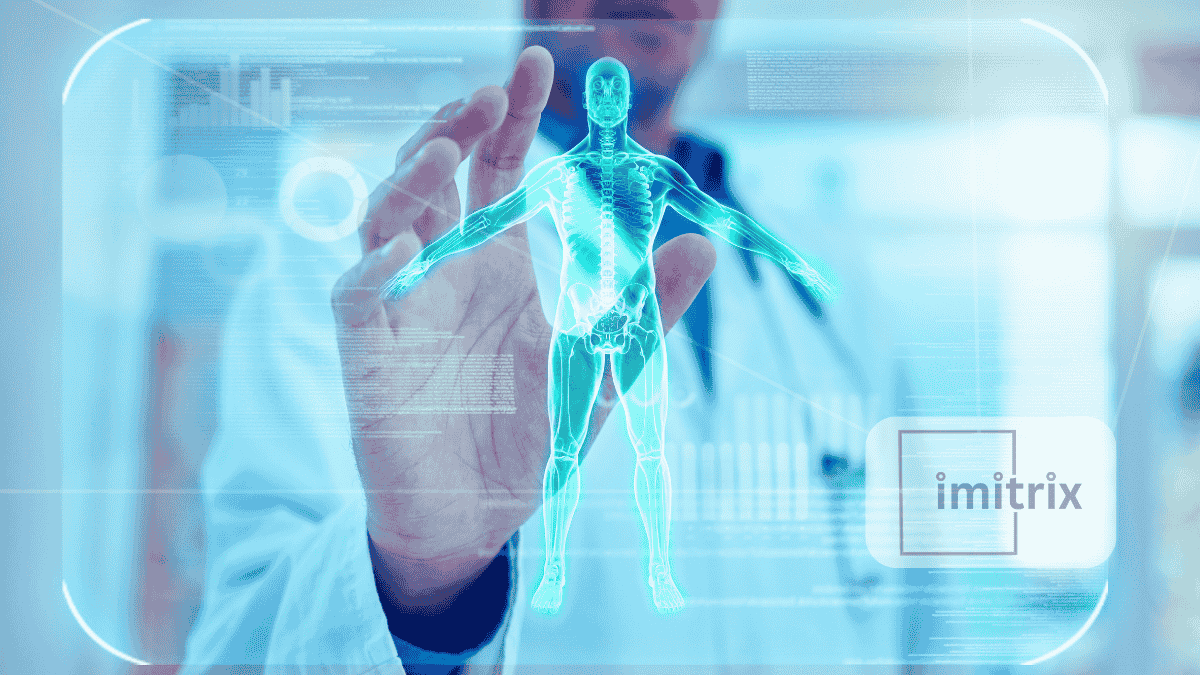Artificial intelligence (AI) is transforming the healthcare industry by enhancing diagnostics, personalizing treatments, and improving patient outcomes. Healthcare with AI is becoming the new standard, as the integration of AI technologies into healthcare systems not only increases efficiency but also revolutionizes the way medical professionals approach patient care.
The Rise of AI in Healthcare
AI healthcare technology refers to the simulation of human intelligence processes by machines, particularly computer systems, applied within the medical field. In healthcare, AI encompasses a range of technologies, including machine learning, natural language processing, and robotics, all aimed at analyzing complex medical data. The adoption of AI in healthcare has been driven by the need to manage large volumes of data and the demand for more accurate and timely diagnostics.
AI-Powered Diagnostics
One of the most significant applications of AI in healthcare is AI-powered diagnostics. These advanced tools use algorithms to analyze medical data with remarkable speed and accuracy, assisting clinicians in identifying diseases earlier and more reliably. For instance, researchers at the University of Cambridge have developed an AI tool that accelerates the diagnosis of coeliac disease by analyzing biopsy images, providing almost instant results compared to the several minutes taken by human pathologists. (Source: Finacial Time and The Guardian)
Similarly, Akido Labs has implemented an AI system, ScopeAI, to suggest diagnoses and treatments based on patients’ symptoms and histories. This system is particularly beneficial for ride-share drivers in New York City, offering prompt healthcare access without requiring time off work. (Source: WSJ)
AI in Medical Imaging
AI in medical imaging has greatly benefited from recent advancements. AI algorithms can quickly analyze large amounts of imaging data, identifying patterns and abnormalities that may be overlooked by human eyes. This technology aids in the early detection and treatment of diseases such as cancer and cardiovascular conditions by providing consistent and precise image analysis.(Source: Spectral-AI)
Companies like Aidoc have developed AI solutions that assist radiologists by flagging acute abnormalities in medical images, thereby expediting diagnosis and treatment planning.
AI Chatbots in Patient Interaction
AI chatbots and virtual health assistants are enhancing patient engagement by providing immediate responses to health inquiries, symptom assessments, and appointment scheduling. These tools improve access to healthcare information and reduce the burden on medical staff. For example, Ada Health has developed an AI-based symptom assessment tool that guides users through a series of questions to provide possible medical explanations for their symptoms, helping them decide on appropriate next steps.
AI-Driven Disease Prediction and Management
Beyond diagnostics, AI is instrumental in predicting disease progression and personalizing treatment plans. AI-driven disease prevention is becoming increasingly important, as models analyze patient data to identify individuals at risk of developing certain conditions, enabling proactive interventions. For instance, the MIT Jameel Clinic has developed AI algorithms capable of predicting breast cancer risk, facilitating earlier and more targeted screenings.
Furthermore, AI is being used to detect early signs of neurodegenerative diseases. Researchers are developing AI tools that analyze eye scans to identify patterns indicative of dementia, potentially allowing for earlier interventions and better management of the condition.
Challenges and Ethical Considerations
Despite the promising applications, integrating AI into healthcare presents challenges. Ensuring data privacy and security is paramount, as AI systems require access to sensitive patient information. Additionally, there is a need for transparency in AI algorithms to build trust among healthcare providers and patients. Addressing potential biases in AI models is also crucial to prevent disparities in healthcare delivery.
Moreover, the role of medical professionals is evolving with AI integration. While AI can enhance diagnostic accuracy, it is essential to maintain the human touch in patient care. Doctors and AI systems should collaborate, leveraging the strengths of both to provide optimal healthcare outcomes.
Future Directions
The future of healthcare with artificial intelligence holds immense potential. Ongoing research aims to refine AI algorithms, expand their applications, and ensure their ethical deployment. Collaborations between tech companies, healthcare institutions, and regulatory bodies are essential to create standards and frameworks that guide the responsible use of AI in medicine.
As AI continues to evolve, its integration into healthcare promises to enhance diagnostic precision, personalize treatments, and ultimately improve patient outcomes. Embracing this technology, while addressing its challenges, will be key to revolutionizing healthcare delivery in the coming years.


[…] challenges remain, the benefits of healthcare with AI are undeniable. Lower costs, better outcomes, and more personalized medicine are within reach. With […]
[…] Healthcare with AI is no longer a futuristic concept. It’s here now, driving better decision-making and streamlining care. AI is assisting in detecting diseases earlier, identifying anomalies in imaging, and offering clinical decision support. […]
[…] hear “AI in healthcare,” some worry it will replace doctors. That’s not the goal. In reality, Healthcare with AI is about collaboration. Machines handle repetitive, data-heavy tasks while humans focus on empathy, […]
[…] this article focuses on AI in medical imaging, it’s part of a larger shift toward healthcare with AI. From predictive analytics and robotic surgery to virtual health assistants, AI is reshaping every […]
[…] support, and enhance patient engagement. In an age where efficiency and accessibility are critical, healthcare with AI offers promising […]